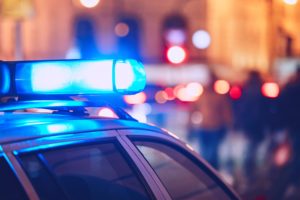Here in Greenville and other parts of South Carolina, DUI checkpoints are legal and are common. These are legally termed “traffic checkpoints.” As the summer comes on and various driving holidays approach, checkpoints are going to proliferate. An ABC4 news article from last summer provides a good example of publicity surrounding the checkpoints. See here. Apparently, there is even an app for your phone to help you avoid DUI checkpoints. See here.
We here at the Law Offices of H. Chase Harbin strongly recommend that you do not drink and drive. Your best criminal defense is to not commit the crime. However, if you do find yourself arrested at a DUI checkpoint, we will fight for your rights. This article provides some general information on their legality.
Legal Background of DUI Checkpoints: Brown v. Texas
The original of DUI checkpoints is a U.S. Supreme Court case called Brown v. Texas, 443 U.S. 47 (1979). According to our own Supreme Court, Brown established a three part test for determining the constitutionality of a DUI/traffic checkpoint:
(1) the gravity of the public interest served by the stop/seizure
(2) the degree to which the seizure serves the public interest; and
(3) the severity of the interference with individual liberty
In subsequent cases, it has become well established that preventing drunk driving satisfies the first prong of Brown. That is, the public has a large and grave interest in stopping the death and injuries that result from wrecks, crashes and collisions that happen when drivers are impaired. As such, DUI checkpoints are legitimate and legal if the other criteria are met.
To satisfy the other two prongs, certain basic requirements must be met including:
- Law enforcement must have some basis for the location of the checkpoint — examples including results of the checkpoint, citizen complaints, prior incident reports, prior traffic tickets, success of checkpoints in similar and/or nearby locations and more
- The purpose of the checkpoint must be legitimate — DUI checkpoints are okay, but generalized “crime control” and “narcotics interdiction” are not legitimate purposes (see State v. Groome, 664 SE 2d 460 (S. Car. Supreme Court 2008 (evidence suppresses as checkpoint was unconstitutional))
- As part of any subsequent prosecutions, law enforcement must have evidence showing the validity of the checkpoint (see State v. Groome (evidence suppressed where prosecution failed to provide evidence for second prong of Brown test))
- Checkpoints must be stationary — no so-called “roving checkpoints” (see State v. Vickery, 732 SE 2d 218, fn 1 (S. Car. App. 2012))
- Checkpoint cannot be established by the officers, but must be set up by their supervisors — see same
- Stops at the checkpoint must be as quick as possible and cannot be overly intrusive
Greenville DUI Checkpoint Criminal Defense — Call The Law Office Of H. Chase Harbin Today
If you have been arrested at a DUI checkpoint, contact the proven criminal defense attorneys at The Law Office of H. Chase Harbin. If the police did not follow proper procedures or if they cannot prove that they had a lawful, legitimate purpose of the checkpoint, then our proven and talented defense attorneys can attempt to have your charges dismissed. Contact our office today via email or by telephone. We have offices in Greenville and Pickens, South Carolina.

Chase Harbin is a Criminal Defense Lawyer who practices in Pickens and Greenville, SC. He graduated from the University of South Carolina School of Law, and has been practicing law for 17 years now. Chase Harbin believes in defending the accused. Learn more about his experience by clicking here.

